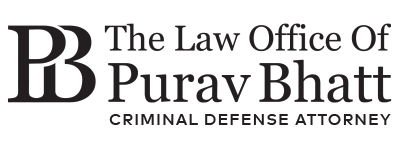What is the difference between an expungement and sealing of my record? Criminal arrests can have many detrimental consequences in one’s life. A criminal background can prevent you from finding employment, prevent you from being able to certify for certain licences or simply be an embarrassing mark on your record.
Many of my clients ask me about what they can do to clear their records after an arrest. Oftentimes, whether an individual qualifies for an expungement or sealing of his record will depend on what type of background the person has and what the outcome of the current case was. After these questions are answered, only then can you determine whether you qualify for an expungement, sealing or neither.
So what is the difference between an expungement and a sealing of your record?
Expungements
An expungement causes the physical destruction of one’s records or to return the records to the petitioner, and to obliterate (remove) the petitioner’s name from any official index or public record. This allows a person arrested for a misdemeanor offense such as: retail theft, marijuana possession, battery, assault, etc. and some felony arrests to be erased off of one’s criminal background permanently. Illinois understands that an arrest record can be accessed by potential employers, educational institutions and law enforcement. As a result, Illinois has allowed an individual to clear his or her record if that person’s background qualifies under the expungement guidelines. So what are those guidelines?
First, you must determine whether your case was dismissed or you were found not guilty at a trial. If so, your charge will qualify for an expungement.
If you were placed on supervision, it will depend on what charge you were placed on supervision for. If the charge is retail theft, domestic battery or operating an uninsured motor vehicle, you must wait 5 years before you qualify to have your record expunged. If you were placed on supervision for another offense aside from the offenses mentioned above, you will be required to wait 2 years before qualifying to expunge your record.
Once a criminal background is expunged, the police file is either destroyed or returned to the defendant who sought the expungement.
Sealing
The sealing of ones record allows the criminal record to be closed to public access. Sealing allows the individual to physically and electronically maintain records, but to make the records unavailable to the public without a court order and to obliterate (remove) the petitioner’s name from any official index or public record. However, law enforcement agencies and the courts will still have access to the records, as will other entities and employers allowed by law.
Sealing one’s criminal record is attractive because oftentimes, my clients simply wish to protect their ability to gain employment and the sealing of a criminal record allows you to do that.
First Steps?
The first step in seeking an expungement or sealing of a criminal record is for the individual to get a copy of his or her rap sheet from Criminal History Access and Review Records Services Division –4770 S Kedzie, Chicago, Illinois.
Once the rap sheet is in possession, a certified copy of disposition needs to be compiled in order to complete the petition to expunge or seal.
Purav Bhatt is a criminal defense attorney with offices in Lincolnwood, Illinois. His office routinely handles expungements and sealing petitions for his clients.
If you have any questions about expungements or sealings or would like to discuss completing the petition contact us or call us at 773-791-9682.
[standout-css3-button href=”/contacts”]Contact Our Office.[/standout-css3-button]






